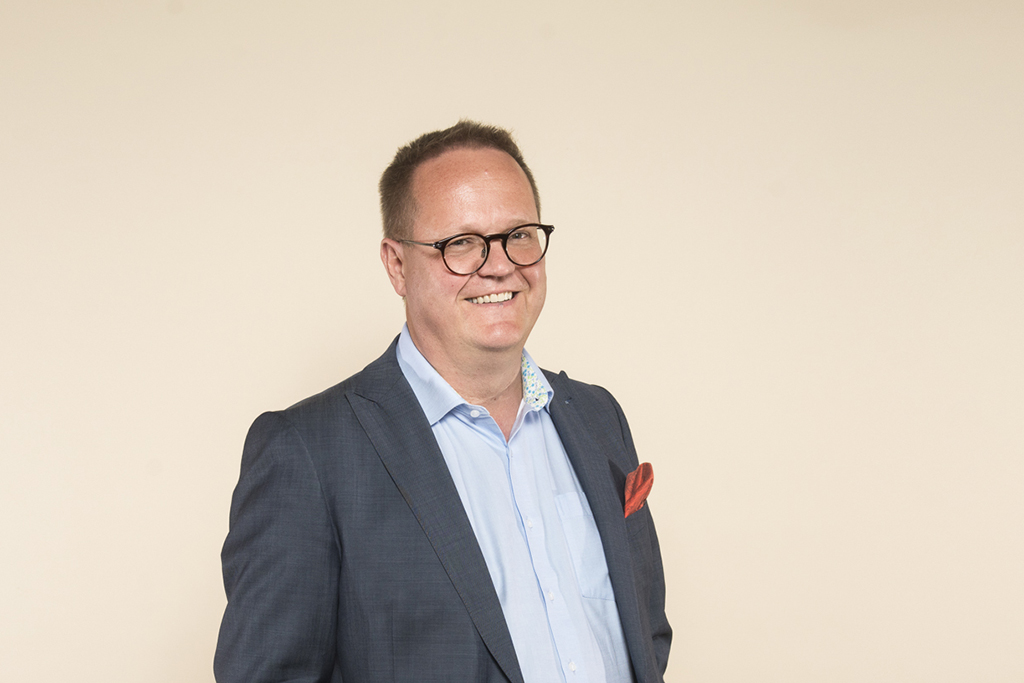The Deaconess Foundation expanded its influence and national presence
For the Helsinki Deaconess Foundation, 2018 was characterised by active social advocacy and an expansion of its activities to new parts of Finland.

Olli Holmström, CEO, Deaconess Foundation
The foundation conducts its basic task of non-profit diaconic work and as a social welfare and health care enterprise.
“We are a social enterprise. This means that using the revenue from our operations and assets we help those people who are at risk of social exclusion”, explains CEO Olli Holmström.
In 2018, the income from the actual operations of the group was €76,8 million, compared with €99,3 million for the previous year. The difference from last year is due to the sale of Diacor Ltd to Terveystalo Ltd in 2017. Actual net operating income saw a deficit of €5,2 million (€3,5 million deficit in 2017). The group’s profit for the financial year was €-0.4 million (€86,7 million in 2017).
At the end of the year in review, the market value of the foundation’s investment assets was estimated at €268 million. 48% of assets comprised real estate properties, 46% comprised equity investments, and 6% comprised fixed income investments. These assets generated €4,8 in rents and other investment income. The group’s equity ratio was 88% (89%).
“The scope of our operations would not be possible without significant investment assets and returns,” says Holmström. “At the heart of our strategy is the renewal of our operations and the improvement of our profitability. Our aim is that the group’s profits for the current financial year will be slightly positive.”
Significant social investments
In 2018, the foundation spent over €3 million on non-profit diaconic work. For example, over €1 million was invested in preventing youth social exclusion. The Vamos service, run in eight localities, reached over 2,300 young people during the year. More than half of them joined paths to training or work.
“We are constantly developing new solutions. We need positive forces of change by which we can increase the confidence, agency, and involvement of citizens”, Holmström points out.
Challenges in social and health services
In 2018, the business operations of the Deaconess Foundation’s subsidiary Diakonissalaitoksen Hoiva Ltd and the child and family work conducted within the foundation came within the scope of the social services and health care (Sote) sector. There were about 2,300 customers in most of the services tendered by municipalities. In addition to child protection services, the sector produced housing services, services for the elderly and substance abuse services. The income of the Sote sector in 2018 was €36,7 million (€37,4 million) with profits decreasing to €-1,6 million (€-1,0 million).
“The competitive situation within our Sote sector is intense. Despite tough price competition, we want to maintain good and high quality care, and invest in the well being of our customers and staff. But it is imperative to reorganise the Sote sector, and we expect its result to be positive during the current year,” observes Holmström.
The goal: nationwide and international reach
The activities of the Deaconess Foundation and its subsidiary Diakonissalaitoksen Hoiva Ltd primarily focus on the Helsinki metropolitan area. In addition, the foundation has operations in Kuopio, Lahti, Oulu, Rovaniemi, Tampere and Turku, while Hoiva operates in Järvenpää, Lahti and Tampere.
“Our goal this year is to expand our services to other parts of Finland. Success requires that we are customer-centred, with a strong renewal of traditional operating models and strong partnerships. In all of these, we are going to grow and become stronger,” says Holmström.
The Deaconess Foundation is also an international actor and is involved in development cooperation in Belarus, Kosovo, Moldova, Namibia, Somalia and Ukraine. The Deaconess Foundation also engages in project work in Bulgaria and Romania.